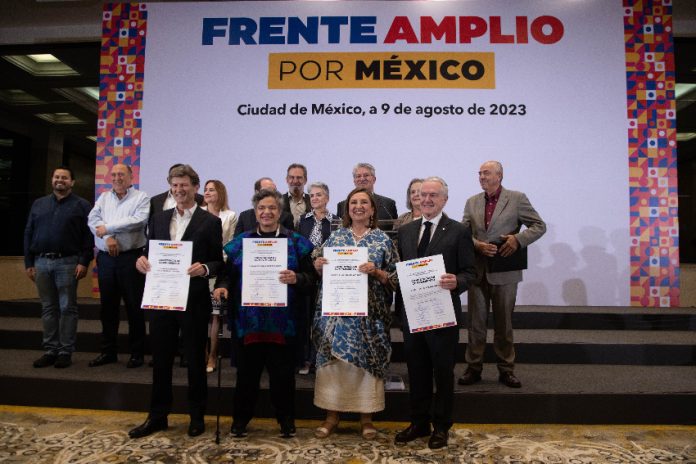And then there were four: just two women and two men remain in contention to secure the 2024 presidential election candidacy for the Broad Front for Mexico (FAM), the opposition alliance made up of the National Action Party (PAN), the Institutional Revolutionary Party (PRI) and the Democratic Revolution Party (PRD).
The FAM organizing committee announced Wednesday that Senator Xóchitl Gálvez, Deputy Santiago Creel, Senator Beatriz Paredes and former tourism minister Enrique de la Madrid met the requirements to reach the second stage of the opposition bloc’s candidate selection process.
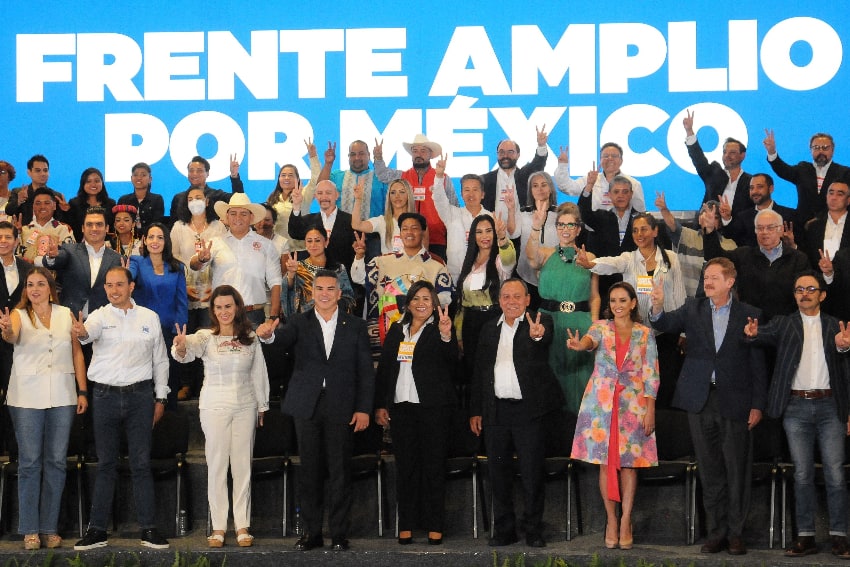
The first two are representatives of the PAN, while the latter two are affiliated with the PRI.
Each of the four aspirants collected well over 150,000 signatures of support, the minimum threshold to remain in the contest to represent the PAN-PRI-PRD alliance at the June 2, 2024 election.
Gálvez, Creel, Paredes and de la Madrid collected at least 1,000 signatures of support in at least 17 of Mexico’s 32 federal entities and thus met another requirement to reach the second stage of the selection process, which will include a “great forum” Thursday night during which each aspirant will set out their vision for Mexico.
A polling process will follow to determine the three contenders with the greatest support. The “finalists” will progress to the third stage, during which five more forums will be held to give the would-be candidates additional opportunities to present their ideas and sell themselves to voters.
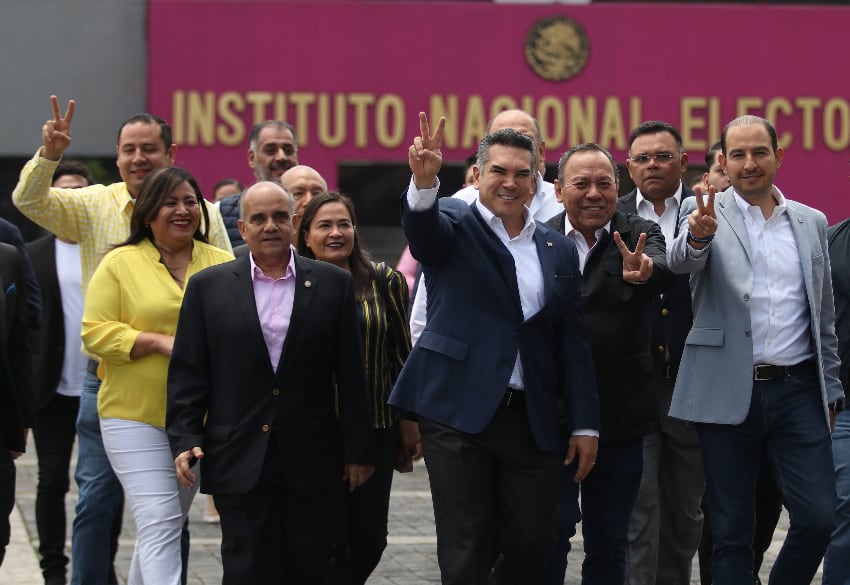
According to the FAM selection process outlined in late June, new public opinion studies will be carried out to gauge support for the three aspirants and the results will be published on Sept. 3.
A “direct” vote in which registered citizens can participate will be held on the same date, with the results to be announced that night.
The results of the third stage public opinion studies and the vote will be given equal weighting to determine the “person responsible for the construction of the Broad Front for Mexico.” That person will become the FAM presidential candidate once the election period officially commences.
Xóchitl Gálvez
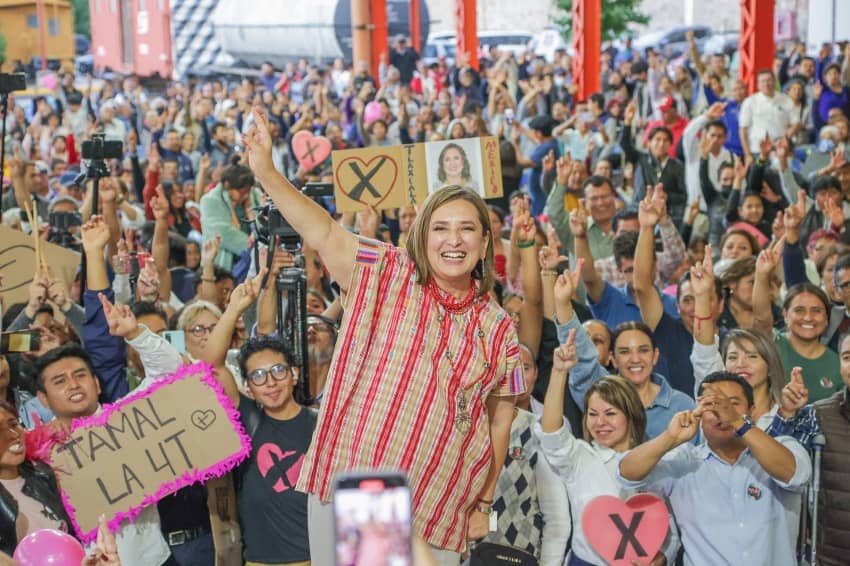
The PAN senator is currently the leading FAM aspirant, according to the results of an El Financiero newspaper poll published Tuesday, with 23% of respondents nominating her as their preferred opposition candidate.
Born in Tepatepec, Hidalgo, in 1963, Gálvez served as mayor of the Mexico City borough of Miguel Hidalgo between 2015 and 2018, and was general director of the federal agency in charge of indigenous affairs during the second half of the 2000-2006 government led by former president Vicente Fox.
The indigenous Otomí woman, a computer engineering graduate, has been a senator since 2018, but her profile has risen exponentially since she announced her intention to seek the presidency in a video posted to social media in late June.
President López Obrador claims that Gálvez has already been chosen as the FAM candidate, and has repeatedly made verbal attacks on the senator, prompting the National Electoral Institute (INE) to ban him from speaking about electoral issues in the lead-up to the 2024 elections.
Santiago Creel
The PAN deputy, who has previously served as a senator, attracted 14% support among respondents to the El Financiero poll.
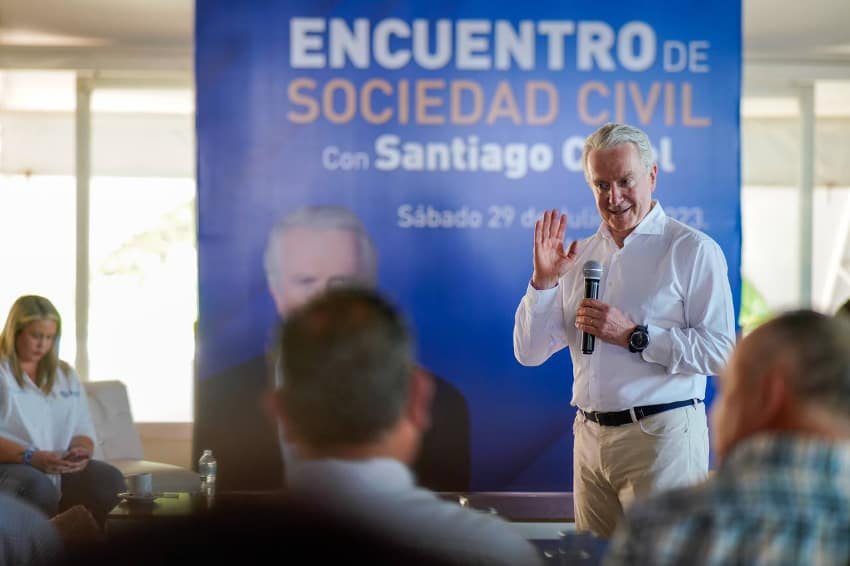
Creel, a lawyer by profession, is best known for having served as interior minister – usually considered the second most powerful position in Mexican politics – during the government of Fox, who won the presidency for the PAN in 2000 after more than 70 years of uninterrupted PRI rule.
Before serving as interior minister, he represented the PAN at the 2000 Mexico City mayoral election, which was won by López Obrador.
Born in Mexico City in 1954, Creel sought to represent the PAN at the 2006 and 2012 presidential elections, but his quest to obtain the conservative party’s candidacy was unsuccessful on both occasions.
Beatriz Paredes
The PRI senator, governor of Tlaxcala between 1987 and 1992, is the preferred FAM candidate of 8% of those recently polled by El Financiero.
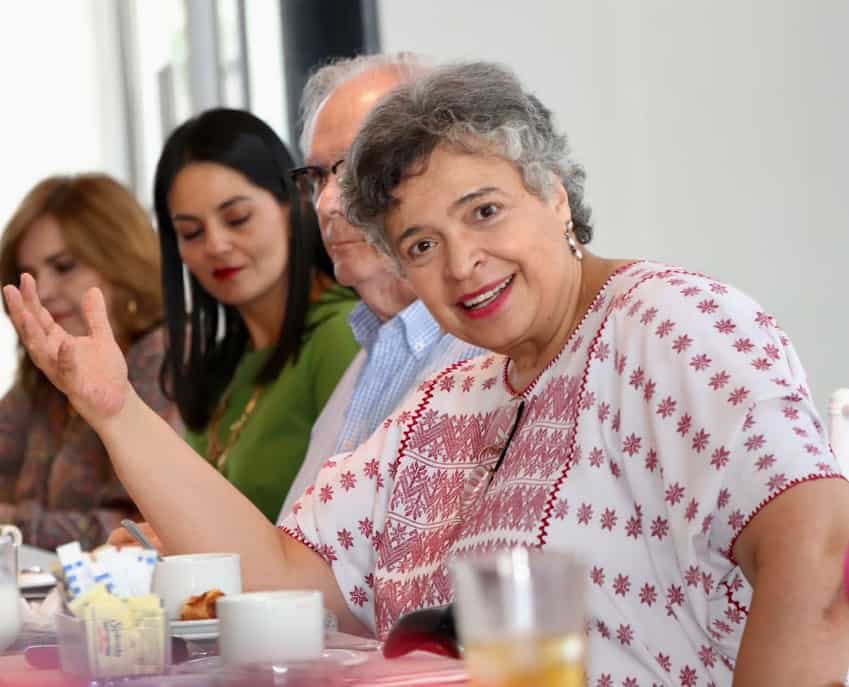
Born in Tlaxcala in 1953, Paredes served as Mexico’s ambassador to Brazil between 2012 and 2016. She was national president of the PRI between 2007 and 2011 and for a period also headed up the National Farmers Federation.
In addition, the sociology graduate has served as a federal deputy and contested the 2012 Mexico City mayoral election won by Miguel Ángel Mancera.
Enrique de la Madrid
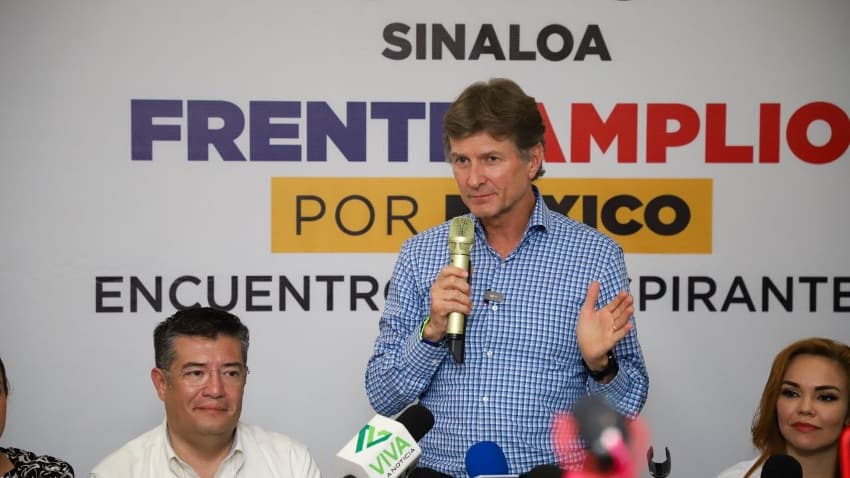
The son of former president Miguel de la Madrid (1982-88), Enrique de la Madrid attracted 13% support among El Financiero poll respondents.
Born in Mexico City in 1962, the FAM presidential aspirant was tourism minister in the second half of the 2012-18 government led by former president Enrique Peña Nieto.
He was a federal deputy between 2000 and 2003 and later headed up two different state-owned development banks. De la Madrid studied law at the National Autonomous University and subsequently obtained a Masters degree in Public Administration from Harvard University.
Who failed to reach the second stage of the FAM selection process?
Gálvez, Creel, Paredes and de la Madrid were among 13 aspirants formally registered by the FAM alliance, meaning that the hopes of nine have now been dashed.
Former Michoacán governor Silvano Aureoles, ex-Tamaulipas governor Francisco García Cabeza de Vaca, former Querétaro governor and current Deputy Ignacio Loyola, ex-Mexico City mayor and current Senator Miguel Ángel Mancera, former deputy and senator Jorge Luis Preciado and Deputy Gabriel Quadri will not take part in the second stage of the FAM selection process. Three “ordinary citizen” aspirants are also out of the contest.
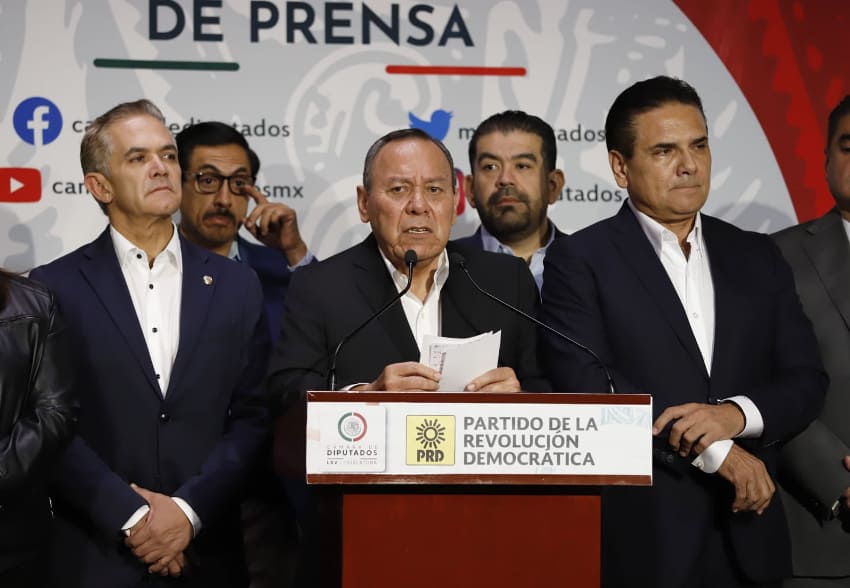
Aureoles, Mancera and García Cabeza de Vaca all collected more than 150,000 signatures of support, but didn’t reach the second stage of the selection process as they either lacked the minimum level of support across 17 entities or some of the signatures they collected were deemed to be invalid. Aureoles and Mancera, both PRD representatives, questioned the fairness of their exclusion from the contest, while García Cabeza de Vaca said he would have liked the FAM to be a “little more flexible” with its rules on the collection of signatures.
What is the Broad Front for Mexico (Frente Amplio por México)?
The Broad Front is essentially the successor alliance to Va por México, an electorally convenient coalition formed by the PAN, the PRI and the PRD – generally considered Mexico’s three main opposition parties – in late 2020.
The Va por México coalition fielded joint candidates at elections in 2021, 2022 and 2023.
When that alliance unveiled the method it will use to select its 2024 presidential candidate, it announced the formation of the Broad Front for Mexico, which includes the PAN, the PRI and the PRD as well as allied citizens’ groups.
Political parties in Mexico commonly create new coalitions (or at least coalitions with new names) to support their candidates at federal elections.
In the 2018 presidential election, Andrés Manuel López Obrador represented the Juntos Haremos Historia (Together We Will Make History) alliance, Ricardo Anaya stood for the Por México al Frente (For Mexico in Front) coalition and José Antonio Meade represented the Todos por México (All for Mexico) bloc.
In an attempt to avoid falling foul of electoral laws, the person elected as the FAM candidate will initially be known as the “person responsible for the construction of the Broad Front.”
The PRD announced Thursday that it would “pause” its participation in the FAM organizing committee in consideration of the exclusion of Mancera and Aureoles from the candidate selection process.
“We’re not going to accept improper political exclusions of anybody,” said PRD national president Jesús Zambrano.
It wasn’t all smooth sailing for Va por México either. The electoral success of that coalition, whose constituent parties come from both the right and left of Mexican politics, was limited, and differences in opinion between the parties, as well as opposition to Alejandro Moreno’s leadership of the PRI, almost led to a split in the bloc last year.
The 2024 Elections
In addition to electing a new president, Mexicans on June 2, 2024 will also renew both houses of federal Congress – the Chamber of Deputies and the Senate.
Voters in eight states will elect new governors, while citizens in Mexico City will choose a new mayor. Many other state and municipal positions will also be up for grabs.
The Ruling Morena party
The alliance led by the National Regeneration Movement (Morena) is also conducting a primary-style process to select its 2024 presidential candidate. The leading aspirants in the six-person field are former Mexico City mayor Claudia Sheinbaum, ex-foreign affairs minister Marcelo Ebrard and former interior minister Adán Augusto López.
The Morena-led alliance, which also includes the Labor Party and the Ecological Green Party of Mexico, will announce its new standard bearer on Sept. 6.
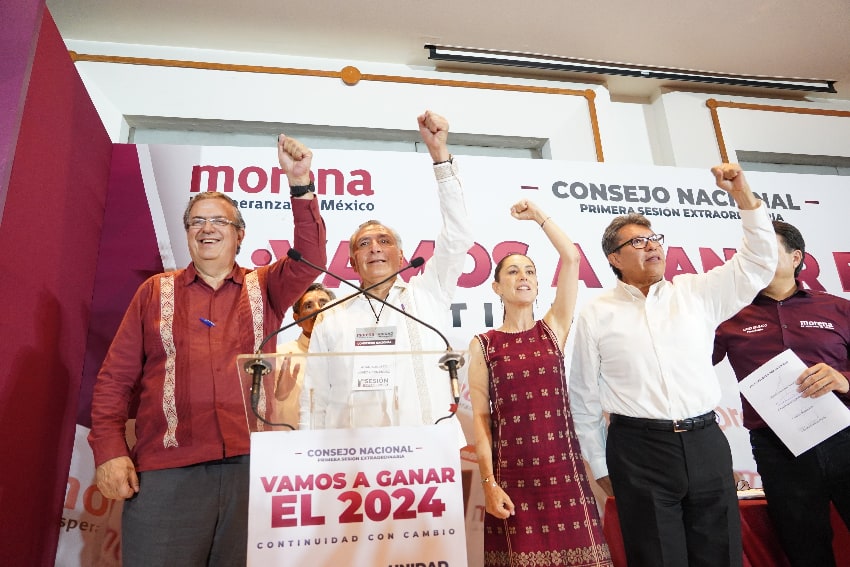
The recent El Financiero poll found that Morena remains on track to retain the presidency at the 2024 election, but the popularity gap between Sheinbaum and Gálvez, and Ebrard and Gálvez, narrowed compared to the newspaper’s previous survey.
Morena founder López Obrador, who is banned by the constitution from seeking a second term in office, will hand over the presidential sash to his successor on Oct. 1, 2024.
With reports from Expansión, Animal Político, El Economista, El País and Milenio
